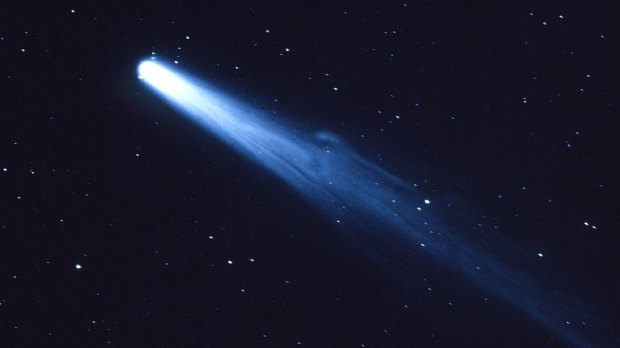When will Halley’s Comet return?

THE most famous comet, Halley's Comet, in history makes an appearance close to Earth every 75 years, however, its fragments from previous visits are still visible from time to time.
Here is when you will be able to see the periodic Halley's Comet once again.
When will Halley's Comet return?
The comet itself has a long 75-year orbit, but its remains are scattered along its route.
Every October or November, Earth passes through this field of debris.
During a week in October, specifically on the 21 and 22, we will be able to witness a meteor shower from the remains of Halley's Commit.
This is famously known as the Orionid Meteor Shower.
The chunks of space rock hit the atmosphere at huge speeds, and then burn up – creating a meteor shower.
They travel very quickly, reaching speeds of up to 41 miles per second as they soar across the night sky.
Halley is the only known short-period comet that is regularly visible to the naked eye from Earth, and will next appear in mid-2061.
When did Halley's Comet last appear?
Halley last appeared in the inner parts of the solar system in 1986.
During that appearance, the comet became the first to be observed in detail by spacecraft.
That provided the first observational data on the structure of a comet nucleus.
High-powered telescopes also observed the comet as it swung by Earth.
LATEST SPACE NEWS
Could Halley's Comet hit Earth?
During the comet's pass in 1910, it flew by about 13.9 million miles from Earth, which is about one-fifteenth the distance between Earth and the sun.
It raised high public concern, fearing that it will be the end of the world.
However, humanity survived to leave yet another day and Halley's Comet was captured on camera for the first time.
According to biographer Albert Bigelow Paine, the writer Mark Twain said in 1909: "I came in with Halley's Comet in 1835.
"It is coming again next year, and I expect to go out with it."
Twain died on April 21, 1910, one day after perihelion, when the comet emerged from the far side of the sun.
Throughout the years, no scientist has so far found any danger of the comet hitting Earth.












